'I go to sleep at night wondering if we are safe'
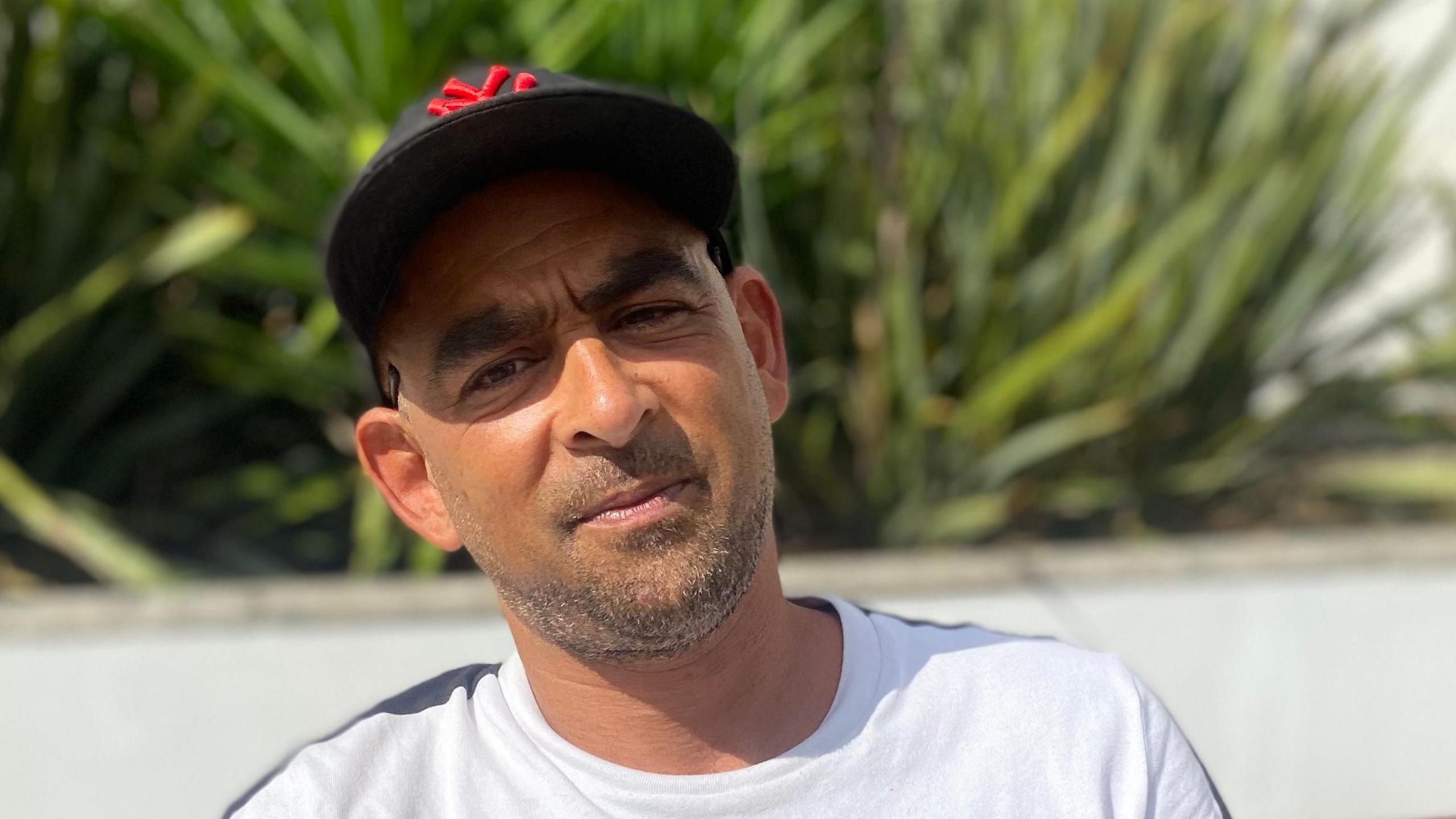
Hamid El-Ouahabi grew up and works in the same area as Grenfell Tower
- Published
Hamid El-Ouahabi remembers the pain and trauma of what his community experienced following the Grenfell Tower fire.
He is a sports coach at a school underneath the tower and lost pupils and friends he worked with to the tragedy.
Seven years on from the fire, the 46-year-old has discovered that his own home, a short distance away in Earls Court in west London, has a flammable exterior.
“As a parent, I go to sleep at night thinking, 'are we safe?'”
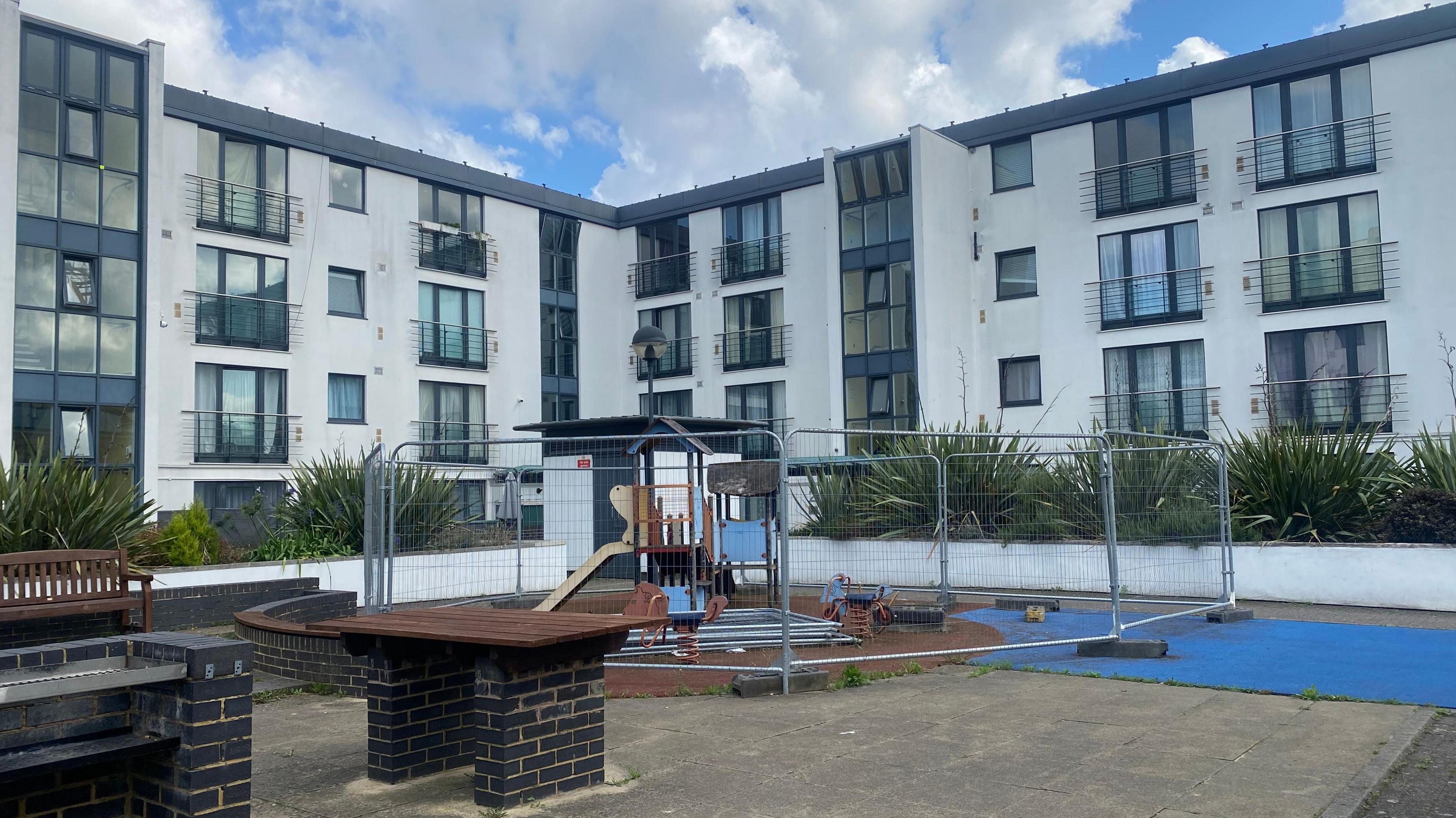
Hamid El-Ouahabi's flat block in Earls Court
Hamid is one of many Londoners living in a building that is deemed unsafe. After a fire in Dagenham, east London, in August, London fire commissioner Andy Roe said there were some 1,300 buildings in need of remediation work in the capital.
Father-of-three Hamid, who owns a share of his flat, says: “After what we witnessed with Grenfell, to think there’s buildings a mile away from Grenfell covered in flammable render - it’s horrific.”
His landlord is Notting Hill Genesis. In a statement, it said: “Our residents’ safety is always our first priority and we have carried out extensive investigations to the external wall, which have revealed issues that require remediation work.
"This work will be fully funded and not recharged to leaseholders. We have put in place interim measures as advised by our appointed fire safety experts to mitigate any risk and ensure residents' safety until all necessary work can be completed.”
'Biggest mistake of my life'
In 2022, the government announced that no leaseholder living in a building more than 11m (36ft) high would face any charges for fixing dangerous cladding and that the cost of making a block of flats safe should to be absorbed by the owners of the whole building and the land (also known as the freeholder).
But BBC London has spoken to many people who say they are “trapped” in homes they cannot sell as disputes over who pays for what continue.
Martin Raychev, 47, bought his flat on the seventh floor of a new build in Barnet, north London, in 2015. He says buying the leasehold home was “the biggest mistake of my life”.
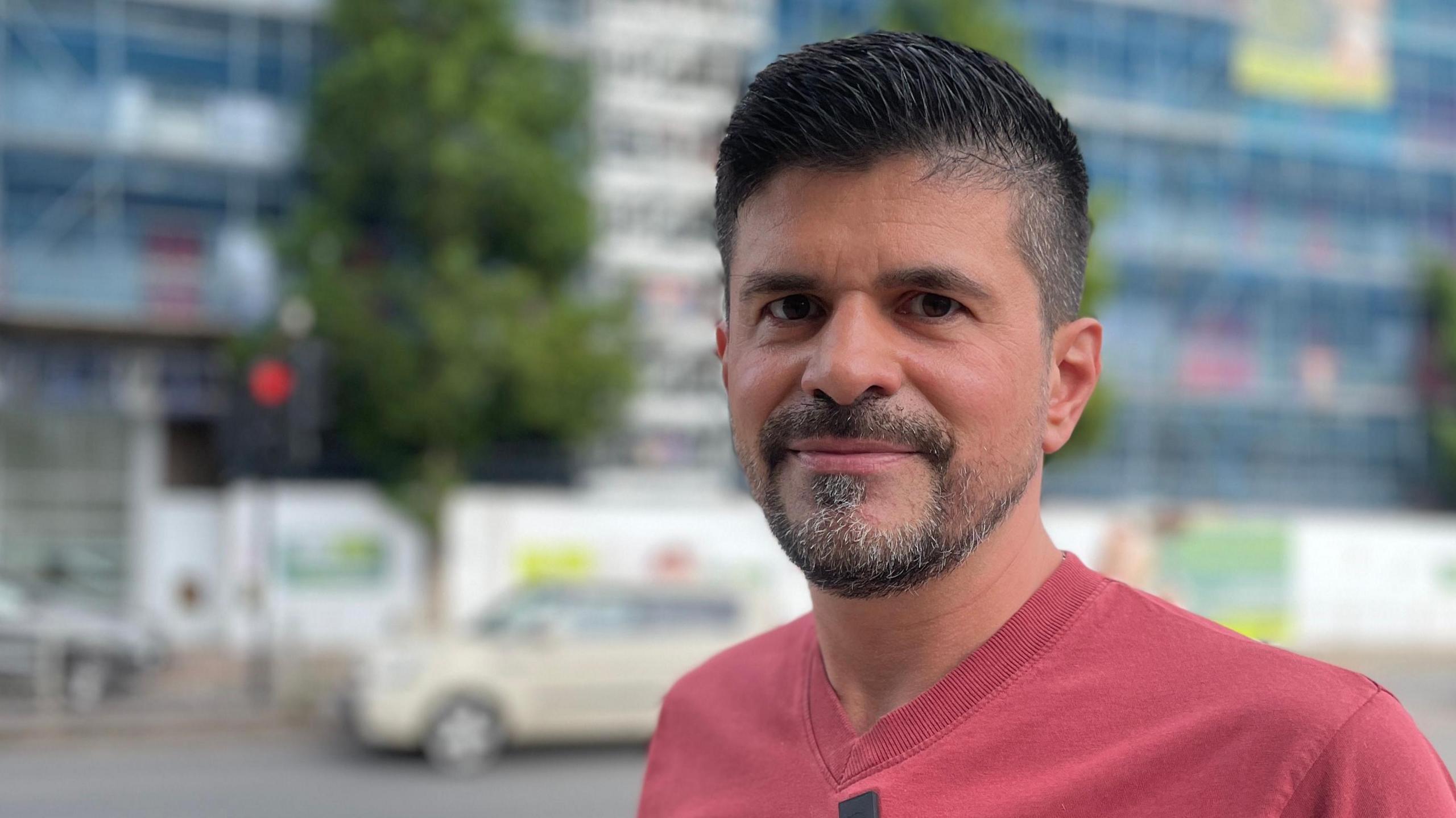
Martin Raychev says that when he saw the Dagenham fire, he thought he should probably buy some anti-smoke masks
After the Grenfell fire, his building was found to have flammable cladding and insulation.
He says the fire in Dagenham was a reminder of the dangers residents like him face.
“When we saw the fire in Dagenham, which is a very similar building, I thought that I should probably buy some anti-smoke masks.”
Work to make his building safer started at the beginning of the year but stopped after two months.
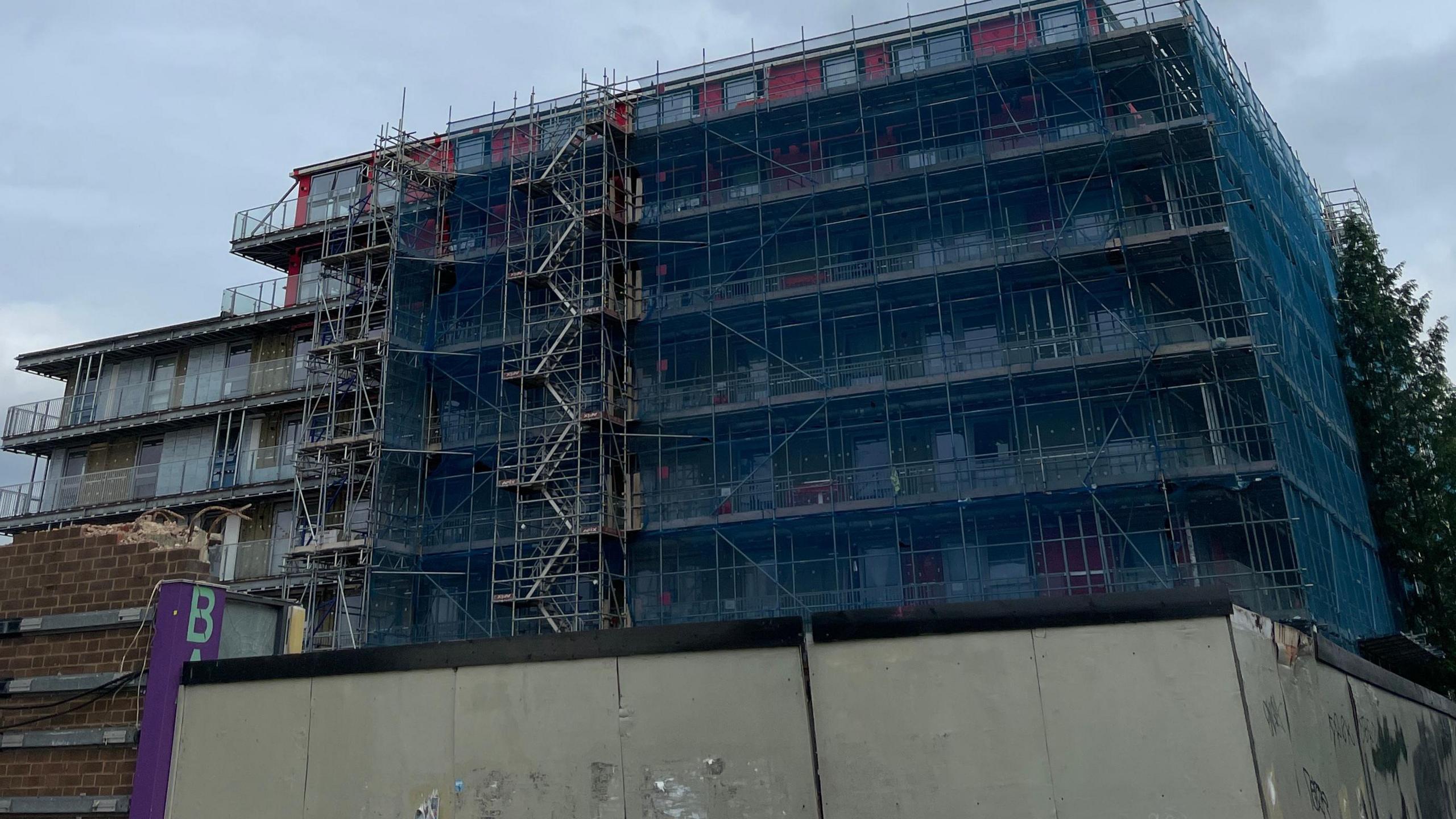
The work on Martin's flat block has stalled
He received a letter to say the freeholder had gone in to administration, so the contractors stopped working as they were not being paid.
That means the building has been left without usable balconies, and without exterior covering on the walls, and Martin says he and his neighbours have no idea how safe the site is.
In a joint statement on behalf of the administrators and receivers of the building, Savvas Socratous, of Alexander Lawson Surveyors, said: "All of the combustible cladding has now been removed from the building."
When BBC London visited the site on 2 September, the work appeared to be incomplete and a waking watch - a safety system that involves trained people patrolling a building to detect and respond to fires - was still present. Mr Socratous said the patrol had since been approved to be removed by insurers.
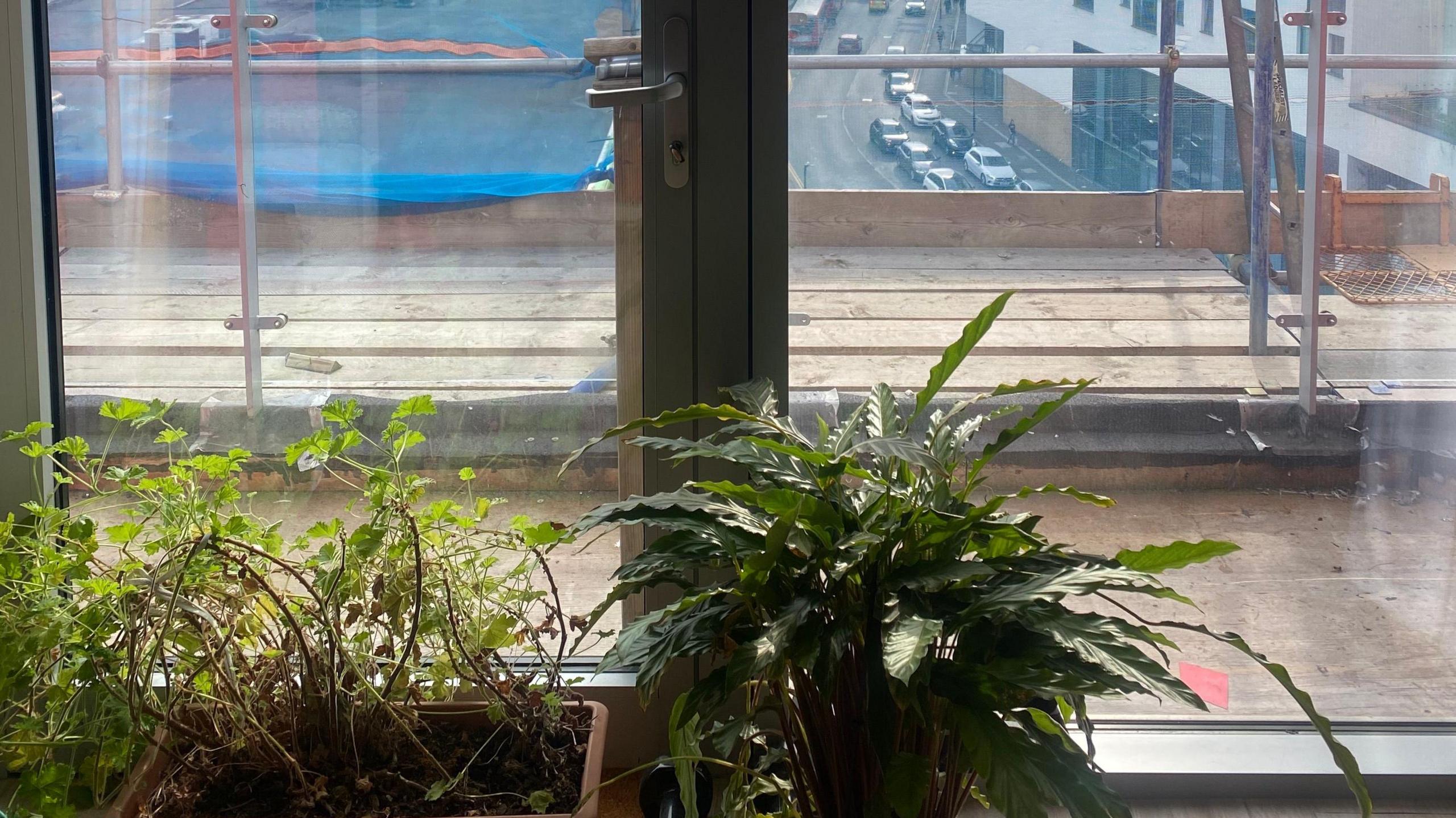
Martin's balcony cannot be accessed
As well as the safety concerns, the financial pressure of living in a home like this is affecting leaseholders and tenants all over the UK.
Martin says he was paying £2,000 a year in service charges before the Grenfell tragedy, but this year the bill amounted to more than £7,000. Martin is only paying a proportion of his service charge as he feels the costs are unjustified.
He says the cost of the 24-hour waking watch for his block of 95 flats was £355,000 and other “inflated” costs have caused his service charge to rocket.
Additionally, since the defects with the building were discovered, he has personally received a number of "eye-watering" bills. One seen by the BBC was for nearly £66,000, a bill he hasn't paid.
Martin says he was told by a mortgage adviser that his building was “blacklisted” because of the defects so he is limited for options to remortgage and cannot sell.
The BBC understands several managing agents have been looking after the building in recent years. The current agent, Maunder Taylor, referred us to the administrators.
In a statement, Mr Socratous said that the "issues regarding fire safety and defects of the building all significantly pre-date" both the managing agent and its involvement.
The statement added that it was "the priority of the administrators and receivers to work to bring about a swift resolution for the benefit and safety of the residents". He added they were working "to restart funding for cladding rectification and begin necessary works for compliance".
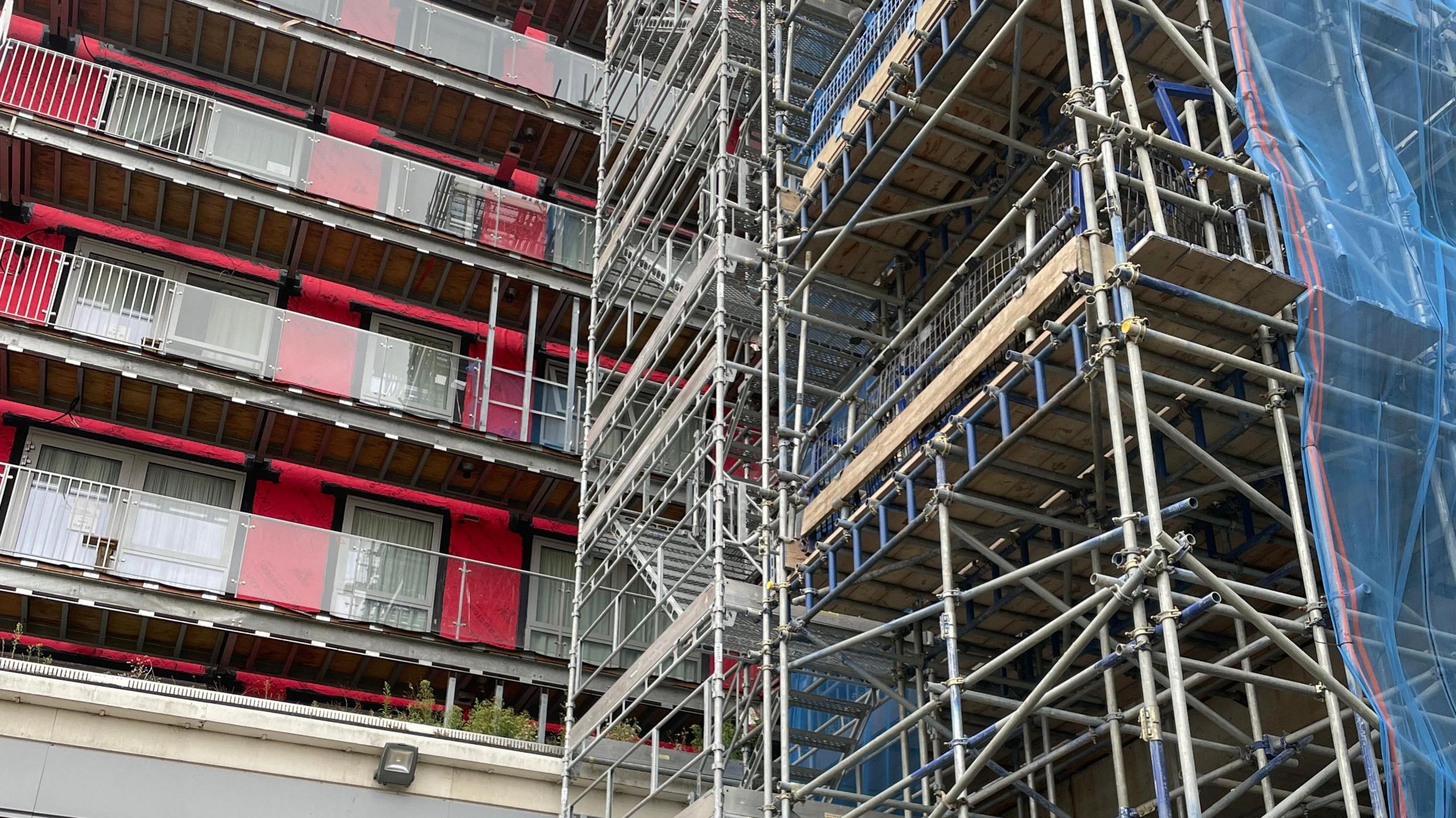
Martin is struggling to remortgage and cannot sell
For Hamid, too, the repercussions of the fire safety issues in his building have had a significant financial impact. He says because of the the cost of insurance, his service charge bills have gone from £200 to £600 a month, a rise the father of three says he cannot afford.
He says: “We bought these properties in good faith and to be told 20 years later, out of our control we’re going to be charged this sum, is a kick in the teeth.”
In a statement Notting Hill Genesis said: “We appreciate that this is a significant increase in the service charge and understand the challenges it presents leaseholders.
“Notting Hill Genesis does not own the building, did not construct it and is not responsible for its insurance. We are a not-for-profit housing provider who acquired the head lease when the estate opened in 2000.
"Some of the inhabitants have acquired their properties under shared ownership and are responsible for paying the service charges. We administer the service charges, which includes insurance premiums passed on at cost and sourced by insurance brokers who search the market for the most cost-effective and appropriate policy.”
The BBC has contacted the freeholder, Seven Capital Mark Ltd, for comment but has not received a response.
'Trapped in unsafe homes'
According to government figures, 4,630 buildings over 11m (36ft) were identified as needing dangerous cladding removed but the latest data showed work had not yet started on half of those sites.
Giles Grover from campaign group End Our Cladding Scandal believes the actual the figure is much higher. “There's still many, many more to be assessed," he said.
“It’s a national scandal. We need to remember that we might talk about buildings, but it's the people in the buildings, it's the people we need to focus on.”
The Grenfell Inquiry made 58 recommendations including for an “urgent” review of the definition of "higher-risk" buildings.
In response to the inquiry's findings, Prime Minister Sir Keir Starmer said it was taking too long to remove cladding from buildings and the government would take steps to speed up the removal process - including potentially forcing freeholders to assess their buildings and fix issues within a set time.
But residents like Hamid and Martin say they have been left stuck for too long in unsafe homes they cannot sell.
Hamid says: “If there’s anything that comes out of Grenfell it should be that every building should be fire safe, every family should have the right to know that they’re not sleeping in a high-risk building."